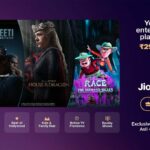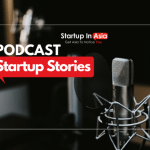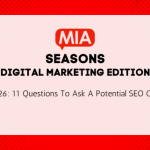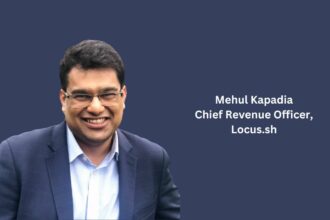Lessons that will radically change your outlook on business and life.

In 2018, I broke the $200k mark for the first time in my life. It was both everything, and nothing, like I expected it to be.
As a freshly minted father of triplets in his early thirties at the time, I had a lot on my plate. I was a sole provider to a new family of 5, had literal 24+ hour diaper duty shifts, AND was quitting my cushy $130k/year consulting job to start my own business from scratch.
Looking back, I think that the shock of having to keep 3 little humans alive, fed, and sheltered made me a little crazy… because I certainly had no idea what the hell I was doing.
Needless to say, many lessons were learned in that first year of business. There were ups. There were downs. And there were more than a few “sideways”. But I managed to make it — earning my first $200k+ ($219k to be exact) in a year.
Read the 8 best of these lessons below.
Lesson #1: The world doesn’t care how smart you are, it cares about how smart you make other people feel.
As an entrepreneurial person, I think it’s safe to say that I have always had a bit of an ego. I was always the person willing to tackle the hard challenges and be the one to take on a bit of risk in doing so.
Of course, my eagerness to do what others wouldn’t was not fueled by my desire to do goodwill for society — it was fueled by my need to gain glory from my own hard work and ingenuity. I wanted others to see how smart and hard working I was.
Sad to say, I needed validation from society that I was deserving of the “success” I sought.
With my self-centered view of the world, I sprinted out into the business world determined to conquer my goals and become rich… but I quickly ran into the brick wall of sales.
People didn’t want to buy from me…
Even though my nice-guy, raised in Canada, charm earned the trust of my prospects, my intellectual prowess (soft laugh) pushed people away. I thought that I was smarter than everyone else… and, really, who the hell wants to buy from the person who pretends to be smarter than they really are?
Thankfully, one of my prospects — an elderly gentleman who had been in business for decades — was kind enough to call me out. With kind words, he taught me the most important lesson I have ever learned in business…
“People tend to buy things that make them feel smart.”
The light bulb went off in my head. Most everything that I had ever purchased in my life, aside from food and entertainment, had been purchased because it made me personally feel smart. Other people were no different.
People tend to buy things that make them feel like they made the right decision. And, in order to feel like they made the right decision they need to feel like they were smart in the purchase.
This is true even when buying emotionally. They will justify their emotional purchase with logical arguments, every time.
What this means for you, and most all businesses, is that you should approach all marketing, sales, writing, and customer interactions with an understanding that your customer doesn’t want to buy from you because you have all the answers. They want to buy because they want to feel like they have all the answers (and you helped them to get those answers).
Lesson #2: Traffic is the most important thing. Period.
The most prominent law of business states “no sale shall be made without traffic”. What this means is that sales cannot happen, ever, if there is not at least one person looking at your offer.
The key words here are “person”, “looking”, and “offer”. You need all three in order to make a sale.
Most entrepreneurs, myself included, overlook this law. They spend their time doing any except driving traffic. They tinker on their website. They chit-chat with other entrepreneurs. And they obsess over their product(s).
They neglect the fact that the thing that will really grow their business, is traffic.
As is mentioned in the book, Traffic Secrets, a business that doesn’t drive traffic will eventually die. It is both an inevitability and a consequence of breaking the laws of business.
So, if you are an entrepreneur who has struggled to either get started and/or grow past a certain point, it is time that you started focusing more on traffic… because there is a direct correlation between traffic and business success.
Lesson #3: Freedom is created when you pay others to do the things you are perfectly capable of doing yourself.
When I first started in business, I had an obsession with doing everything myself. Taxes, marketing, content creation, product development, customer support, and everything in between rested on my shoulders.
While I’d like to think that I handled it all well and fine, I didn’t. Critical items were missed, customers became upset, and money was lost.
Even when I completely overloaded myself and felt like the world was caving in on me, I couldn’t bring myself to fork over my hard earned dollars to someone else who might not do the work as well as I would. The more work I did myself, the more money I got to keep for myself (or so I thought).
It turns out, my beliefs were wrong.
The more work that I did myself, the less money I made… and the less of my life I got to live.
That’s because not all work is made equal. Admin type work is worth a certain amount in society, sales type work is worth a completely different amount, and strategic type work is worth a whole other amount altogether.
Given that we all only have 24 hours in a day, the person who can command the highest dollar for their time will be the highest paid. Simple math, right? But what if that person who could command higher level pay decided to spend half of their time doing work that is worth less?
Simple answer, they get paid less… and often times end up burning themselves out
Unfortunately, most entrepreneurs tend to do this to themselves. They get so caught up in being the person that can do it all that they end up being the person that actually does it all (at their own expense).
“Just because you can do something doesn’t mean that you should.”
As Russell Brunson’s talks about in his One Funnel Away Challenge, success in business often comes down to “the who”, not the “how”. What this means is that instead of figuring out how to get something done yourself (the how), ask yourself who is already doing this and can help you (the who)?
When you start looking for the who instead of the how in your business, things start to click. Revenue increases, time feels less rushed, and life feels much better.
Lesson #4: Advertising is the worst form of marketing.
I’ll get a lot of flack for this one, but it is true nonetheless. Advertising is the worst form of marketing. It costs the most, is the hardest, and is the most stressful.
That’s not to say that it doesn’t work… because it does. It’s just not the best (by a long shot) for most businesses.
Yes, it is often times the fastest way to get your message out to market, but how often is the shortest path the best path? Rarely.
The best forms of marketing, by far, are the one-to-many channels that are free and often overlooked: content creation, webinars, word of mouth, and all the others that allow you to say/write something once and have it reach many people without having to pay a gatekeeper.
Advertising is not that.
So, if you’re just starting out in business or are still in a phase where you don’t have a huge ad budget, DON’T RUN ADS. Create content and share in channels where it will be seen, run webinars and use groups to connect with your audience, and — best of all — provide your customers with a phenomenal experience (because they will refer).
Then, once you’re ready for ads, create a funnel for converting customers and test it using the existing traffic you have. If it converts well, starting running ads.
Lesson #5: Go small, really small.
Naturally, as entrepreneurs we have a tendency to go big. We want to solve the big challenges to fulfill our big dreams, after all.
But going big is often the worst thing that we could ever do. Why? Because when we go big we usually take on more than we are capable of finishing; we try to eat the proverbial elephant and then wonder why we’re in so much pain after just the first leg.
As is mentioned in the book, The ONE Thing, people who find success in their endeavors… go small.
They focus in on small problems that can be tackled in rapid succession instead of big problems that take a long time — and a lot of effort — to overcome. Like dominoes that start at 1 and end at thousands of cards falling, people who tackle small challenges quickly end up solving much bigger problems as a result.
Lesson #6: Create a lot of content.
Early on in my entrepreneurial journey, I created a few bits of content that I thought were really good. They would certainly be enough to get people talking about my business and referring back to me as the expert.
But… they weren’t good enough.
It’s not that the content wasn’t good. It was that I didn’t have enough of it (and I still don’t).
The reality of today’s world is that millions of pieces of content are created every day. This content, good or bad, creates a lot of noise in the marketplace. The cream will rise to the top… but there’s also a lot of cream.
This means that you need to create a lot of good content if you want yours to be noticed. That’s the only way to set yourself as a market leader in your industry that others look to.
Lesson #7: Play the backlink game.
Backlinks are often referred to as an indicator of good SEO, but they are so much more than that.
Yes, backlinks to your website and/or content will improve your SEO results, but that’s not the reason you should get excited about them. You should get excited about them because they are the literal fabric that makes up the “web” of the internet.
From an SEO perspective, backlinks indicate that your site is of value for a select keyword and increase your rankings in the search engines where people are actively searching for an answer to a problem. That’s a good thing… but it’s not everything.
The real value in backlinks is in the connections that they create (like the weblinks that you see in a spider’s web). Given that backlinks are links that exist on other websites all throughout the web pointing back to your site, they provide the opportunity for people to click from one site to yours… without a search engine in between.
This means that every time someone is looking at the other site that is linking to yours there is a possibility that they might click on the link and passively land at your site. This means that the traffic of the other site — which might be thousands to millions of people — can end up at your site, interested in what you have to offer.
When you understand this concept, building up backlinks means so much more to your business than just SEO.
Lesson #8: Prioritize YOU over everything else.
Undoubtedly, the most important lesson has been left for last.
I spent years in my business riding a roller coaster of emotions and stress. Things would go up slowly and crash down quickly. My stress levels would change based on an inverse relationship (going up when my business went down, and down when my business went up).
It took years for me to figure out how to take care of myself. And, strangely, it wasn’t until I figured out how to care for myself that the roller coaster stopped with its extremes.
While writing the book Miserable with a Smile in 2020, I took a hard look at myself and how I wanted to be living life. What I was doing was not working, even though I was making good money.
It was at that point that I shifted gears. Instead of centering my life around “success”, I decided I would begin centering it around happiness.
Cheesy as that may sound, it changed everything for me. I started to see the world with a new eye; becoming a better father, more engaged husband, and better business owner.
The most important lesson that I ever learned is that everything rises as you yourself rise. When you feel like you have been driven in to the ground, your life will reflect that. When you feel like you have been uplifted by your circumstances, your life will reflect that as well.
So, if you take nothing else away from this article, take this: focus on you in the next year and watch everything else improve alongside your quality of life.
8 Entrepreneurial Lessons Learned From Making $200k+ Per Year was originally published in Startup Stash on Medium, where people are continuing the conversation by highlighting and responding to this story.














